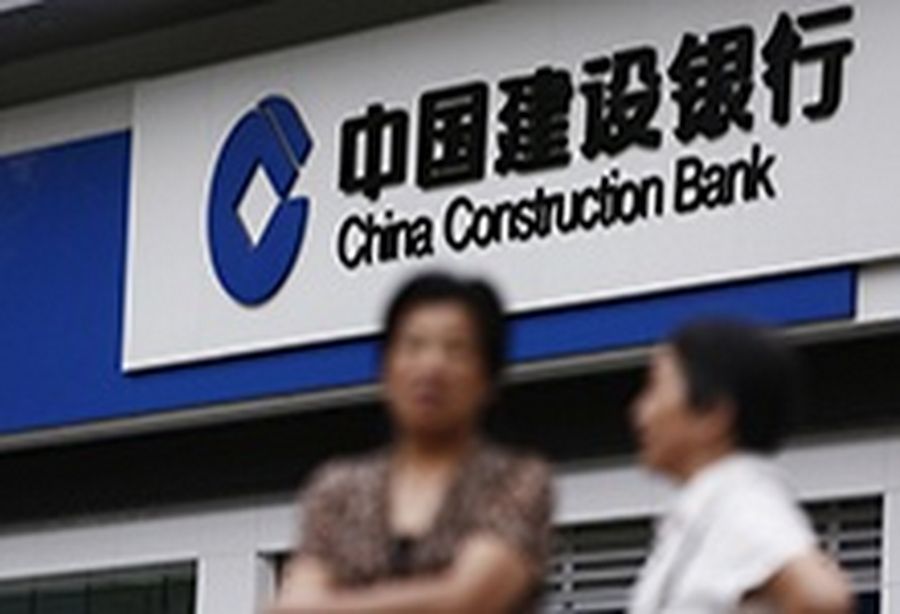
China trust default a blessing in disguise
Source: REUTERS/Aly Song
Residents stand outside a branch of the China Construction Bank (CCB) in Shanghai.
A default in China’s Rmb10.1trn (US$1.67trn) trust market has underscored the need for a more transparent way of dealing with delinquent debts that fall on the fringes of the country’s banking system.
It has been a difficult start to the year for investors in trust products, which comprise more than a fifth of China’s Rmb46.66trn shadow banking industry, according to JP Morgan.
One Chinese trust narrowly avoided a default on January 31, and a week later, a Rmb289m trust created by Jilin Province Trust reportedly missed a payment to investors after a loan it extended to coal miner Shanxi Liansheng Energy went bad. Investors last week said they would demand repayment from the trust originator, as well as from state-owned China Construction Bank, the sales agent. (See People & Markets.)
Though small, the delinquencies could have a wide-reaching and damaging effect on the industry for trusts and wealth management products, which totals about Rmb20trn combined.
Many Chinese market participants – although, perhaps, not trust investors – welcome a contained trust default that can serve as a precedent for the broader debt market.
“The most important thing to come out of a default would hopefully be the introduction of a more transparent and legal scheme for dealing with defaults,” said Haibin Zhu, chief China economist at JP Morgan. “A third party could come in, but, unlike in some cases, it would be understood who the third party is. They could have a bidding process for the assets, for example, and governments don’t need to be so involved.”
Trusts and WMPs are typically distributed – but not explicitly guaranteed – by China’s biggest banks, and have become one of the main sources of concern in China’s rapidly expanding shadow banking sector. Volumes of the trusts outstanding, not including WMPs, grew 35.2% in the first nine months of 2013 to comprise 18.3% of GDP, according to JP Morgan.
With that pace of expansion in any debt market, defaults are common. Yet, while more than one trust product in the country has failed to repay investors on time – a technical default – borrowers and trust administrators have so far managed to find third parties to bail them out.
The process has not been transparent and has worked to distort investor perceptions of the market risk, sources said.
“Technically speaking, China has already seen a default – based on the very strict definition of the word – and this is not the first time a trust product is overdue on payment. Most of the time, before it gets bad, the trust gets repaid,” Zhu said.
Jilin Province Trust, the issuer of Songhua River #77 Shanxi Opulent Blessing Project, said it was not clear when it would recoup its money from Liansheng Energy.
Nonetheless, investors have reason to expect they will get their money back. China Credit Trust Co narrowly missed a default on its January 31 maturity when an unnamed third-party investor bailed it out, as many market participants expected.
Outside help
Yet, even if this month’s default is resolved by an undisclosed benefactor, market participants still expect to see some positive changes to the Chinese debt market. Many bigger state-owned companies are expanding abroad, where more transparent default and bankruptcy practices are in place. They might learn something about credit risk outside the mainland, they say.
“You are seeing some of the stronger Chinese companies buying distressed assets abroad, and as they become more familiar with the way defaults are resolved they can help implement [those practices] at home,” said Mike Murphy, managing partner at AlixPartners, a restructuring adviser.
Beyond that, Chinese investors, including retail savers and high-net-worth individuals, need to vet trusts and WMPs more carefully before they commit their money, Murphy said. Just because they are buying a trust product from the sales force of a stalwart state-owned bank, does not necessarily mean the assets that back it are sound, he said.
“If Chinese defaults start to be resolved more transparently and openly, it could help [lenders] look at the credit they are extending in terms of the collateral that backs it – and not only on the quality of the bank that is issuing it,” Murphy said. “They should look at the collateral package, and if it’s related to the coal industry, they maybe should get paid more for the risk.”
